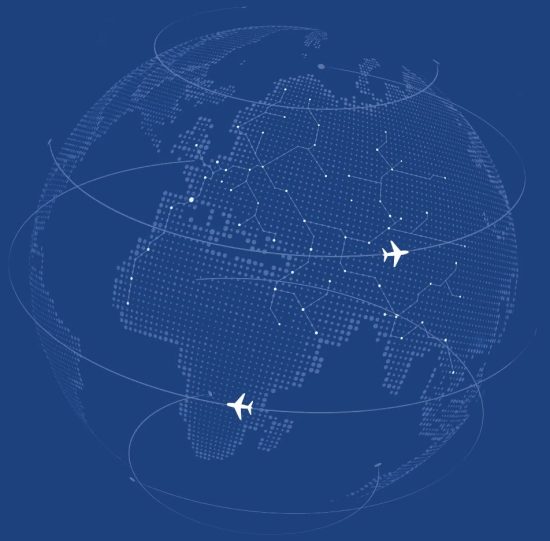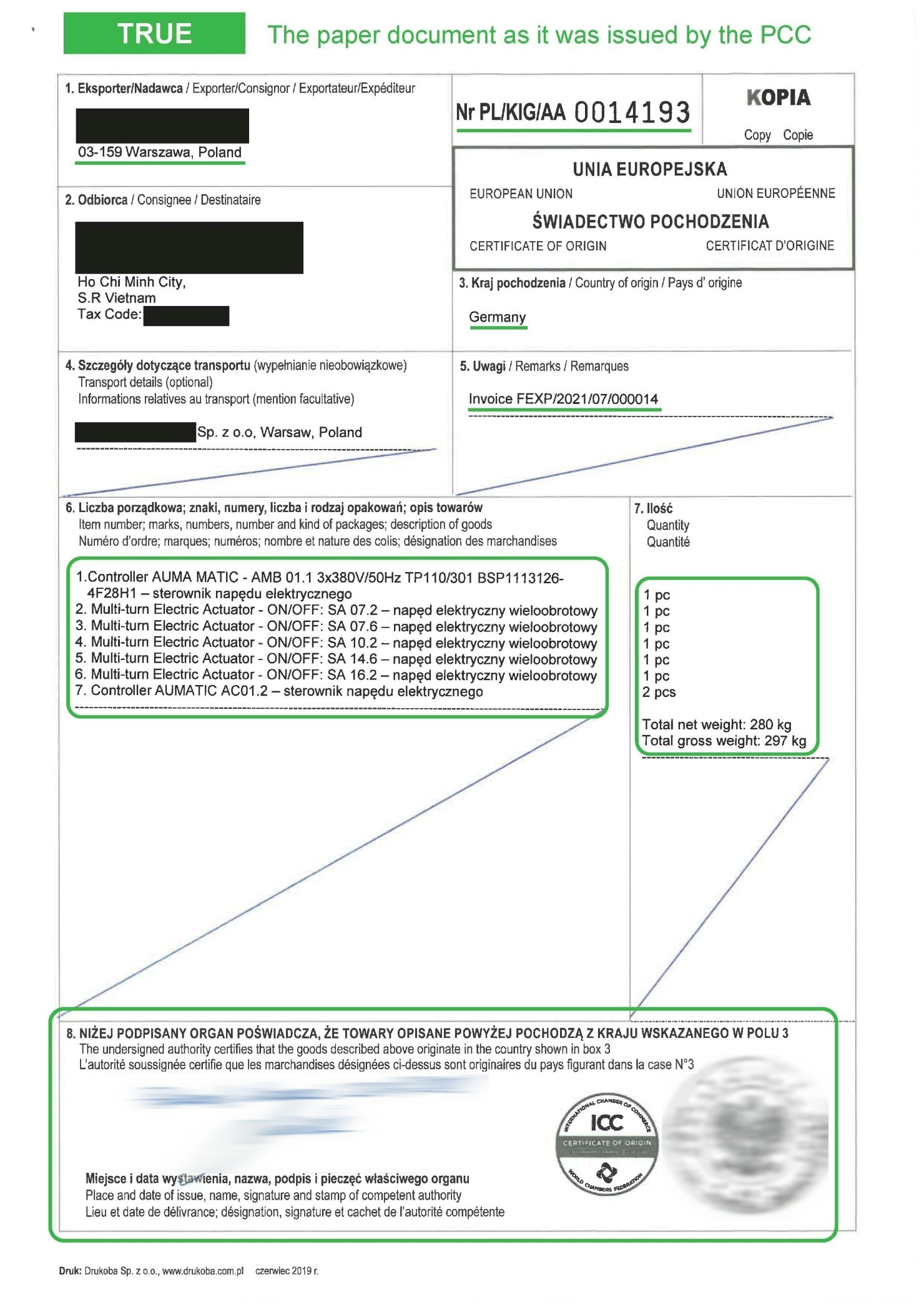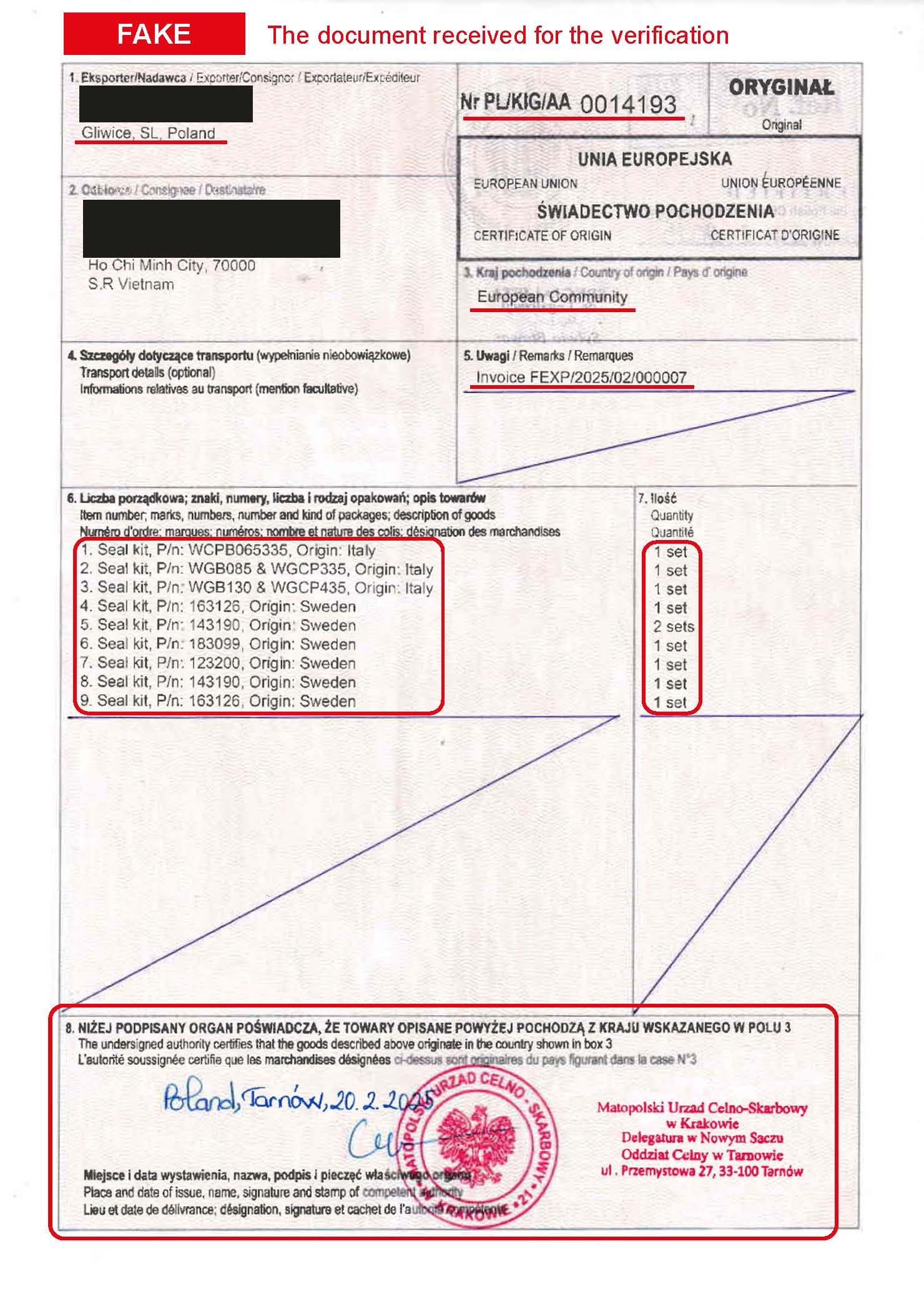Electronic Non-Preferential
Certificate of Origin –
Import Security, Fast and Reliable Verification

The Polish Chamber of Commerce (PCC) – Polish Chamber of Foreign Trade is the only organization in Poland issuing non-preferential certificates of origin ONLINE.
Our credentials:
- Polish law – PCC is legally authorized in Poland to issue non-preferential certificates of origin,
- ICC Accreditation – PCC is accredited by the International Chamber of Commerce in Paris. We operate in accordance with international standards.
Safe trade is our main goal: for the benefit of customs authorities and importers/exporters

Are you a customs agent or an importer?
Verify the authenticity of the e-certificate in 3 steps
– fast and intuitive
1.
Scan the QR code.
Don’t have a camera?
Go to co.kig.pl/verify
and enter the ID and PIN (you’ll find them in the bottom left corner of the certificate).
2.
You will immediately see the original version of the certificate.
Compare it with the document received in the transaction.
3.
Do you see any discrepancies?
Please contact the Polish Chamber of Commerce for further verification.
Check now how easy it is: scan the QR code or visit the website and enter the ID and PIN.

Trust our proven procedures for verifying the origin of goods.
Professional determination
of the goods origin
We are a team of specialists in goods origin determination.
We follow international procedures.
We cooperate with Polish customs authorities.
We work based
on documentation
We verify required documents.
Self-declarations from the exporter alone are not sufficient.
We digitize
documents
We maintain electronic records of all documentation.
Our procedures are easy to audit.
Reduce risks and improve efficiency.
We solve the biggest problems of importers.

Problems with paper certificates of origin
- Only a small number of certificates are subject to verification
- Complicated verification procedures
- Many certificates sent to the Polish Chamber of Commerce for verification are forged
- Costly shipment delays at the border
- Risk of penalties during inspections
- Risk of placing products with uncertain origin on the market, including those from countries under embargo
- Avoidance of anti-dumping duties

Solution from the Polish Chamber of Commerce
- Immediate possibility to verify the certificate online
- Document is electronically secured; Any change attempt is quickly noticed
- Cutting down costly delays at the border
- Reducing the chance of selling goods without verified origin
We ensure that only well-verified goods enter the market.
Discover how we do it.
Read case studies
Case study 1: Customs administration
Goal:
Allow only checked goods with known origin to enter the market. Block embargo evasion and price dumping.
Show more...
Problem:
The authenticity of paper certificates of origin is verified after the goods have entered the market:
- Goods enter the country accompanied by a paper certificate of origin and are sold.
- After some time, the tax administration reviews the import documentation.
- A request for verification of the paper document is sent to the PCC or to Polish customs authorities.
- We verify the paper documentation.
- We send a response (one of two options) to the customs authorities of the importing country:
OPTION 1: The document is authentic.
What next? The inspection ends.
OPTION 2: The document is forged.
What next? Goods of unknown origin have entered the market. Anti-dumping duties, sanctions, or embargoes may have been circumvented.
The state administration must resolve the situation.
Consumer protection authorities order the importer to withdraw the product from the market and impose penalties.
The tax authorities impose fines on the importer.
Solution:
Require electronic certificates of origin. Verify authenticity immediately before the goods enter the country. Full control. No risk.
Case study 2: Importer
Goal:
Conduct international trade efficiently and securely.
Show more...
Problem:
My goods are being held at the border due to the need to verify the authenticity of paper certificates of origin:
- The shipment is stopped at the border by the customs authorities of the importing country.
- Customs officers suspect the document may be forged or the origin of the goods is not acceptable.
- A request for verification of the paper document is sent to the PCC or to Polish customs authorities.
- We verify the paper documentation.
- We send a response (one of two options) to the customs authorities of the importing country:
OPTION 1: The document is authentic.
What next? The goods are released and continue on their way. However, they may have spent anywhere from a few days to several weeks at the border. This may result in additional warehousing fees or losses, especially for perishable goods.
OPTION 2: The document is forged.
What next? The goods are rejected and returned. This causes losses for both the importer and the exporter.
There is also a risk of penalties.
Solution:
Ask your trading partner for an electronic certificate of origin.
Verify it before shipment.
Faster, more reliable, and risk-free.
How to reduce import risks?
As the importing country
(customs authority)
Require documents that you can verify quickly and easily
As the importer
Demand secured electronic certificates from your suppliers



